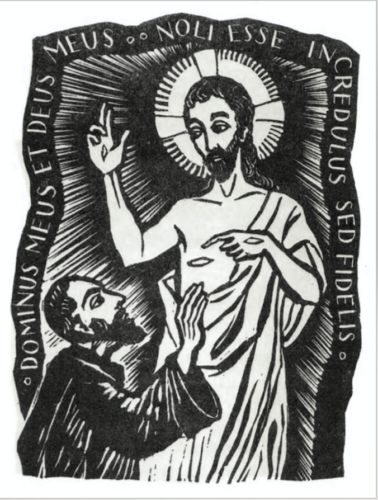Rev José Mario O Mandía
From what we have explained earlier, we can point out the characteristics of faith.
(1) Faith is a gift. When Peter professed that Jesus is the Messiah, Jesus told him that he did not know this through human reasoning: “Blessed are you, Simon Bar-Jona! For flesh and blood has not revealed this to you, but my Father who is in heaven” (Matthew 16:17).
Dei Verbum (no 5), quoted in CCC 153, declared: “Before this faith can be exercised, man must have the grace of God to move and assist him; he must have the interior helps of the Holy Spirit, who moves the heart and converts it to God, who opens the eyes of the mind and makes it easy for all to accept and believe the truth.”
(2) It is a human act, not contrary to human freedom. Every human act requires that the person knows and wills what he is doing. Because faith is a kind of knowledge, it requires the person to know, though he may not fully grasp what is revealed to him. Knowing means accepting, and acceptance requires a willingness to accept, it requires the consent of the will.
And what is freedom? The CCC no 1731, teaches us: “Freedom is the power, rooted in reason and will, to act or not to act, to do this or that, and so to perform deliberate actions on one’s own responsibility.”
Hence, because faith is a human act, it involves the intellect and the will, it is an act that requires freedom (cf CCC 160).
(3) Faith requires knowledge (the exercise of reason), and therefore cannot be contrary to reason. There can be no opposition between faith and science.
Aristotle once said that in order to learn, one must believe, one must have faith. Many of the things we learn come not from direct experience, but through others – parents, teachers, writers, experts in their respective fields. Though they may err, or may not tell the truth, we trust them nevertheless. But in the case of supernatural faith we are talking about God, who neither deceives nor can be deceived.
The CCCC (no 29) teaches us: “Though faith is above reason, there can never be a contradiction between faith and science because both originate in God. It is God himself who gives to us the light both of reason and of faith.”
There can never be an affirmation which is true on a supernatural plane and erroneous on a human one. Likewise, a natural truth can never oppose a supernatural one.
The Second Vatican Council’s document Gaudium et Spes (no 36) teaches us: “Consequently, methodical research in all branches of knowledge, provided it is carried out in a truly scientific manner and does not override moral laws, can never conflict with the faith, because the things of the world and the things of faith derive from the same God. The humble and persevering investigator of the secrets of nature is being led, as it were, by the hand of God in spite of himself, for it is God, the conserver of all things, who made them what they are.”
(4) Faith, in the objective and subjective sense we have studied, is supernatural. It comes from God.
(5) Faith is not only a personal act but also an ecclesial act. The Compendium (no 30) explains that “at the same time it is an ecclesial act which expresses itself in the proclamation, ‘We believe.’ It is in fact the Church that believes: and thus by the grace of the Holy Spirit precedes, engenders and nourishes the faith of each Christian For this reason the Church is Mother and Teacher.”
To believe is an act of a believer as a member of the Church.
St Cyprian (De unit. 6: PL 4, 519) wrote, “No one can have God as his father who does not have the Church as his mother.”


 Follow
Follow


